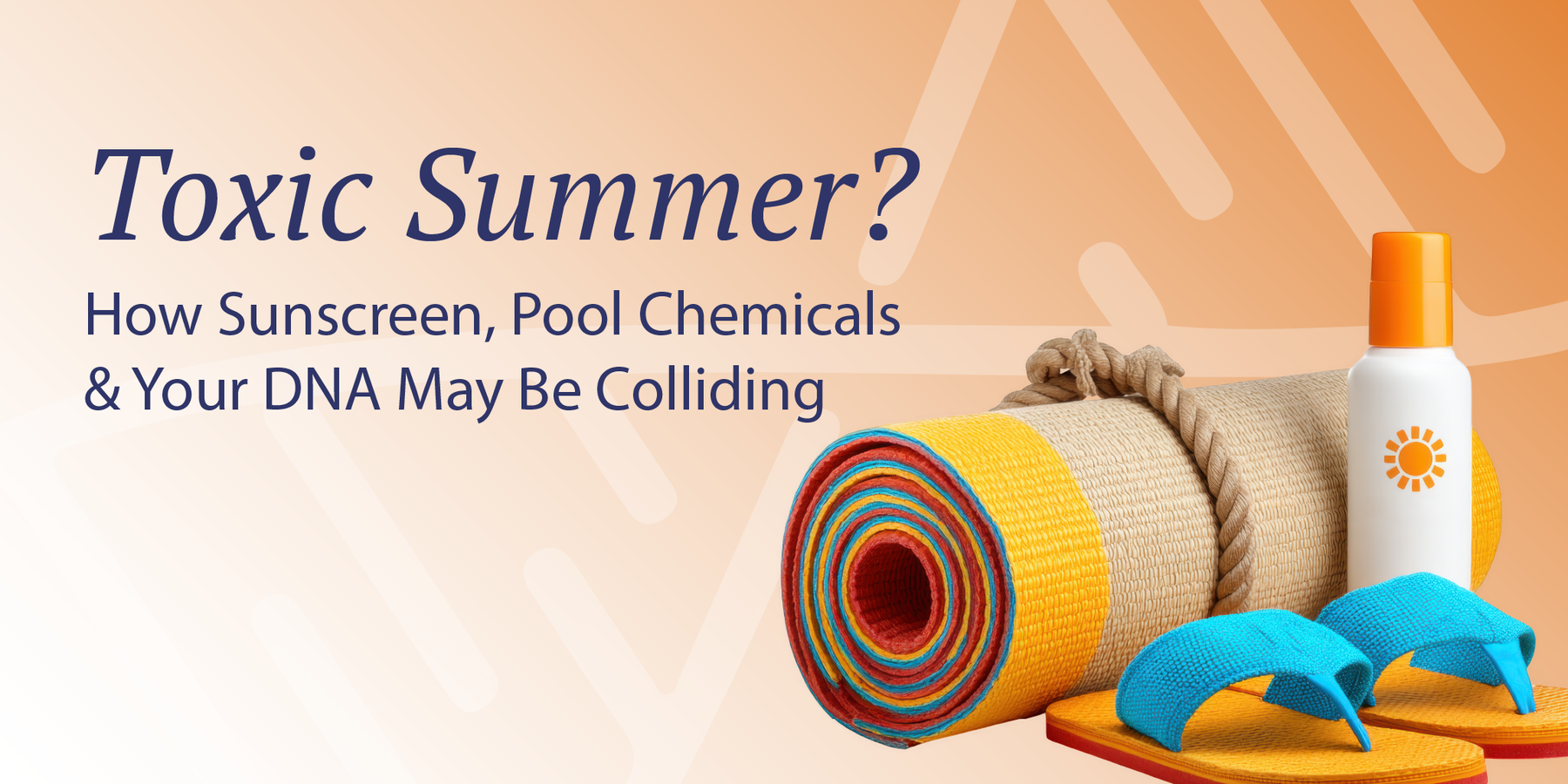
Toxic Summer? How Sunscreen, Pool Chemicals & Your DNA May Be Colliding
Summer is a season of sunshine, poolside lounging, and outdoor adventures but it can also bring hidden risks. From chemical-laden sunscreens to chlorine exposure in pools and pesticide-treated lawns, your body is likely encountering more toxins than you think. And depending on your genetics, those exposures could be doing more harm than good.
At MaxGen Labs, we believe your DNA holds the key to understanding your body’s ability to detox. Our genetic testing for toxic exposures reveals how well you process everyday environmental toxins and how to reduce your risk.
Summer’s Hidden Toxins: What’s Lurking in Your Routine?
Here are a few common summer exposures that could pose a problem, especially if your detox pathways are genetically compromised:
1. Sunscreens & Skin Products
Many sunscreens contain phthalates, parabens, and chemical UV filters like oxybenzone, linked to hormone disruption and environmental damage.
Your genes may make you more sensitive to these endocrine-disrupting chemicals.
Better choice: Opt for mineral-based sunscreens with zinc oxide or titanium dioxide. Look for products labeled paraben-free and fragrance-free.
2. Pool Chlorine & Disinfection Byproducts
Chlorinated pool water can create trihalomethanes (THMs) and chloramines, which are absorbed through the skin or inhaled during swimming.
If your genes reduce your ability to detox chemicals, repeated exposure may contribute to long-term oxidative stress or respiratory issues.
Better choice: Rinse off before and after swimming, limit time in highly chlorinated pools, and encourage facilities to maintain safe pH levels.
3. Lawn Chemicals & Insecticides
Insecticides and herbicides like glyphosate are heavily used in parks and on home lawns, especially in the summer.
Our report looks at genetic glyphosate sensitivity and insecticide detox capacity. Some individuals process these compounds slowly, leading to buildup and higher risk of inflammation or neurological effects.
Better choice: Walk pets and children in organic or untreated areas when possible. Wash produce thoroughly and buy organic when you can.
4. Plastic Water Bottles & BPA Exposure
Hydration is key, but drinking from plastic bottles left in the sun can increase your exposure to BPA, a compound linked to hormonal imbalance.
Some people have a genetic predisposition to BPA toxicity, which means even low levels could be problematic.
Better choice: Use a glass or stainless steel water bottle and avoid plastics labeled with recycling codes 3 or 7.
What MaxGen Labs Can Tell You
Your genetic detox profile gives insight into how your body handles:
- Aromatic hydrocarbons (from smoke, car fumes)
- Pesticides and herbicides (like glyphosate)
- Phthalates and parabens (in cosmetics and personal care)
- BPA and plastic-related compounds
-
Heavy metals and industrial chemicals
If you carry gene variants that affect detox efficiency (like CYP1A1, GSTT1, FADS1/2), you may be more prone to the long-term effects of low-level chemical exposure.
Small Shifts, Big Benefits
Even if your genes show normal sensitivity, it’s still a good idea to minimize toxin exposure. Here are a few DNA-smart swaps to reduce your summer toxic load:
- Chemical sunscreen → Mineral sunscreen
- Single-use plastic → Filtered water bottle
- Conventional produce → Organic snacks
- DEET-based sprays → Natural bug sprays
- Long chlorinated pool days → Swim breaks + rinse
Take Control: Your Genes Can Guide You
With the right knowledge, you can enjoy summer without silently overloading your body. MaxGen Labs’ at-home genetic tests empower you with personalized insights into toxic exposure risk, detox support, and nutritional strategies to feel your best—year-round.